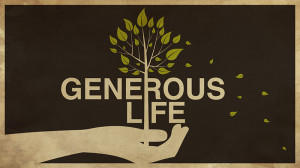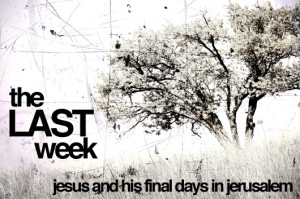We come to the end of our 4 week series entitled God of Justice, looking at God’s heart for the poor, needy, oppressed and vulnerable in the world. We have talked about justice and we have also talked a lot about how God’s heart breaks when he sees injustice in the world. And how we should pray that the things that break the heart of God would break our hearts.
We’ve spent the last 4 weeks in the Old Testament and have seen the thread of God’s call on his people has not just been about sacrifice, but about mercy. That God’s heart throughout all of Scripture is about justice. The thread that we have seen is that God doesn’t just want his people to worship him and then not think a thought about how we then engage with the world around us. These things, our religious rituals and practices and our acts of blessing, service and justice are intrinsically connected to each other according to God.
The first two weeks we looked at two texts in Isaiah. Isaiah 58 talked about the kind of fasting that God wanted. The prophet Isaiah was sharing with the people of God that the needed to not just fast and worship, but their fasting should be to work for justice in the world. To feed the hungry, clothe the naked, visit the sick, etc.. And basically even though the Parable of the Sheep and the Goats hadn’t been spoken yet, to live out that parable in the world.
We then took a look at the text that Jesus took as his mission statement if you will, Isaiah 61. We talked about how these verses drove everything about Jesus ministry in the world. And how it really should be our hearts cry and mission in the world as well. To live out shalom, the way things should be, in the here and now.
Last week we looked at Amos 5:21-24 and saw the thread that runs through so many of the prophets. The people of God thinking that their religious rituals and practices were enough. That that is what God really wanted, but God wanted and wants justice to flow like a river and a never ending stream.
Today we take a look at another prophet and see what he might say to us about God, God’s heart for justice, and what He might truly require of us. We’ll spend time look at Micah 6:1-8.
Before we jump into Micah 6:1-8 let’s take a deeper look at Micah to understand the context of what we will be reading together. Micah was a prophet in the 8th Century BC and he was from Moresheth in Judah, which was roughly around 25 miles southwest of Jerusalem. He was a contemporary of Isaiah, Hosea and Amos. His message was chiefly to the southern Kingdom of Judah, his people so to speak. But especially to those living in the heart of Judah, the city of Jerusalem. Much of Micah’s indictment against Israel and Judah involves the Nations injustice towards the lowly- unjust business practices, robbery, mistreatment of women and children, and a government that lived in luxury off the hard work of it’s nations people who struggled and were oppressed. He also reproaches unjust leaders, defends the rights of the poor against the rich and powerful and preaches social justice while looking forward to a world at peace centered on Zion under the leadership of a new Davidic Monarch. We see this longing in Micah 5:2 where he prophesies where the Messiah Jesus will be born.
With the background out of the way, and a way to give us insight into our text for the morning, let’s turn to Micah 6:1-8 and see what we might find out about justice from this text.
Micah 6:1-8 says, Listen to what the Lord says: “Stand up, plead my case before the mountains; let the hills hear what you have to say. “Hear, you mountains, the Lord’s accusation; listen, you everlasting foundations of the earth. For the Lord has a case against his people; he is lodging a charge against Israel. “My people, what have I done to you? How have I burdened you? Answer me. I brought you up out of Egypt and redeemed you from the land of slavery. I sent Moses to lead you, also Aaron and Miriam. My people, remember what Balak king of Moab plotted and what Balaam son of Beor answered.
Remember your journey from Shittim to Gilgal, that you may know the righteous acts of the Lord.” With what shall I come before the Lord and bow down before the exalted God? Shall I come before him with burnt offerings, with calves a year old? Will the Lord be pleased with thousands of rams, with ten thousand rivers of olive oil? Shall I offer my firstborn for my transgression, the fruit of my body for the sin of my soul? He has shown you, O mortal, what is good. And what does the Lord require of you? To act justly and to love mercy and to walk humbly with your God.”
So Micah 6 kicks off with an imaginary conversation or even a courtroom trial between God and Israel. In verses 1-5 the Lord introduces his case against the disobedient people of Israel. He lays out their story and how He delivered them, redeemed them, and lead them in their history. A history that every single person would have known, studied and repeated to their children. God through Micah lays out that common history to show them his deep love for the people of God and how he truly wants the best for them. Even if they think he is burdening them with a burden that they can’t bear.
After pleading his case to the people of Israel, verses 6-7 record Israel’s response as a series of questions beginning with “with what shall I come to the Lord.” And right here is where you realize that the people of God just don’t get it. They just don’t realize that, even with all of their history, with this God, this redeemer, this provider, this sustainer, this God of Justice, that they don’t know his heart. They don’t know that God desires mercy not sacrifice (as Hosea 6:6 says) and so they ask him these questions.
These questions are focused on their external religious rituals and their questions show progression from lesser to greater. The first question is the wondering if God would be satisfied with burnt offerings of year old calves. The second thought they wondered about, whether it would satisfy God, was a thousand rams. Now this is full of hyperbole because to accomplish the sacrifice of a thousand rams would either require a very very wealthy individual or the entire community. And lastly the question leads them to what they would consider the biggest act of sacrifice they could even imagine, would the sacrifice of their own child satisfy God. Unfortunately sacrificing of their own children was not unheard of in Israel. It happened mostly in the Valley of Hinnom, where we get much of the pictures that Jesus would have used to describe Hell. They try to seek God’s satisfaction with anything but the true thing that He wants, our Hearts for Him and our hearts for others.
And so they ask what he truly wants, and God’s answer is a thread, that I said before, runs throughout each Scripture that we looked at the last 4 weeks, but also throughout the Prophets in the Old Testament, and throughout all of Scripture. In fact God says, through the prophet, “I have already shown you.” It’s almost like he says, “I’ve already told you over and over and over again. And you keep missing it. You think that if you just do these religious rituals, that that will appease me and you can then go off and oppress others, and commit injustice in the world.” No, he says, if you really really want to know what I require. What I really desire, it is simply three things. Just as Israel’s rhetorical question had a 3 part progression, Verse 8 contains a similar progression.
The three things that God truly requires of his people is that we would act justly, love mercy, and walk humbly with our God.
First, he desires his followers to do or act justly. To act in a just and fair way towards others. Treat them the way you would want to be treated. Micah’s audience would have understand the idea of acting justly as living with a sense of right and wrong. And living in such a way that when they would see wrong being committed (injustice) that they would act to bring justice to that situation. God’s heart and his desire is for his people to live and act out justice in the world and have God’s heart for people facing injustice. NT Wright says, “Doing justice in the world is part of the Christian task.” and “Those who follow Jesus are committed to as he taught us to pray, God’s will be done on earth as it is in heaven and that means that God’s passion for justice must be ours too.” This acting justly, according to the Biblical narrative, is intimately connected to reconciliation, to setting relationships to the right. If we want to act justly in the world, it really means (as we’ve talked before) not just signing up for a one time service project (though it may start there), or just giving some money to a local non-profit (though it may start there to). No, acting justly means getting to know someone, hearing their story, sharing your story with them, and committing to walk with them, pray for them, listen to them, and using your voice and your influence (because believe it or not you have more influence and voice than you think you do) to advocate for them.
The second thing God wants from his people is to love mercy. The Hebrew word for mercy is hesed which means loyal love or loving-kindness. Israel was to promote mercy. They were to not only show mercy, but to love to show mercy. Again God is putting his finger on something that they (and all of us I believe) struggle with. They (and us) aren’t just to show mercy but to love to show mercy. We can’t think that we can fool God by acts of mercy, when our hearts aren’t in it. Maybe we want to show mercy to someone because we have to, or we’ll get a pat on the back, or someone will look at us and say “Wow. You are amazing. How do you do it.” And so we do these things for appearance sake, or to get a high off of doing something good, or the recognition that might come with it. But God is again zeroing in on our heart. God has a heart of justice and mercy and he wants us to have his heart. You see both justice and mercy are foundational to God’s character. And if we say that we want to follow Him, then we need to have his heart for justice and mercy as well.
His last desire for his people is that we would walk humbly with Him. A description of the heart’s attitude towards God. Instead of taking pride in what we bring to God (like what verses 6-7 speak about)we have to humbly recognize that no moment of personal sacrifice can replace a heart committed to Justice and love. We need humility in how we approach God and how we then live out His Kingdom in the world. The Israelites thought they had God figured out and in their box. Just do some sacrifices, do the religious ritual things and God will do what we ask or want. We give him what he wants, he’ll give us what we want. But God doesn’t work that way. And God doesn’t just want our external religious rituals. He wants us to walk with Him, learn from him, see people the way that he sees them, figure out what he loves and begin to love that, and to see what breaks his heart so that it would break ours and send us out into the world being his hands and feet and working for shalom, the way things should be.
The response of a Godly heart, set of really knowing and living what He wants, is outward (do justice), inward (love mercy) and upward (walk humbly with our God). That is what it really comes down to. The same 3 relationships Jesus had, and the same three 3 relationships that he wants us to have and live out. In fact, when we pull these all together we have a disciple of Jesus who loves God with all their heart, soul, mind and strength and loves their neighbor as they love themselves.
And so my prayer for us from this series is that we wouldn’t just run out of here and seek to do acts of justice. My prayer is that we would realize that our discipleship means that our worship and prayer life is intrinsically linked to our blessing, serving and justice life. That worship and prayer is worship and prayer, but so is justice and standing up for the poor, marginalized, oppressed and needy. And that God desires all of that together and for us to live a holistic life as a follower of Jesus.
And so what does it mean to follow this God of Justice? What does he really want from us? Act Justly, Love Mercy and Walk humbly with Him. Simple to say. Hard to live out. So let’s talk about what that might look like. What does it look like to live these 3 things out holistically? And what can we do as followers of Jesus to live out justice, mercy, and walking with Him?
1. What thoughts, comments, insights, questions, etc.. do you have regarding Micah 6:1-8 and/or the message?
2. Which of the three verbs (Act justly, Love mercy, walk humbly with your God) stands out to you? Why? How might you seek to grow in that one area?
3. What are practical ways our church can join in the rich history of standing against injustice and for righteousness in our own community and our world?
4. What is God saying to you and what are you going to do about it? What is God saying to us and what should we do about it?





